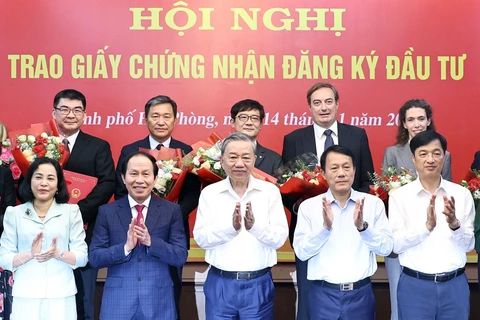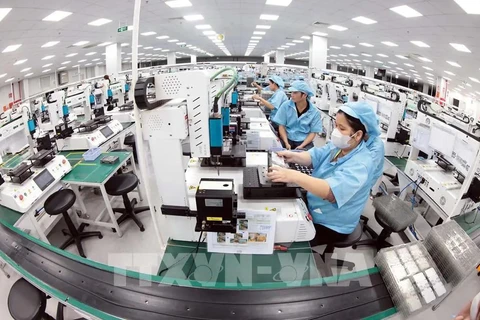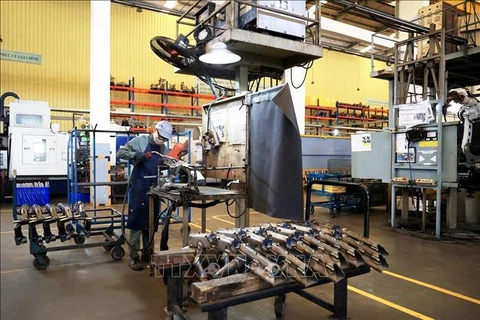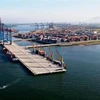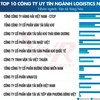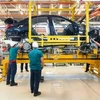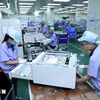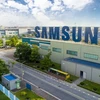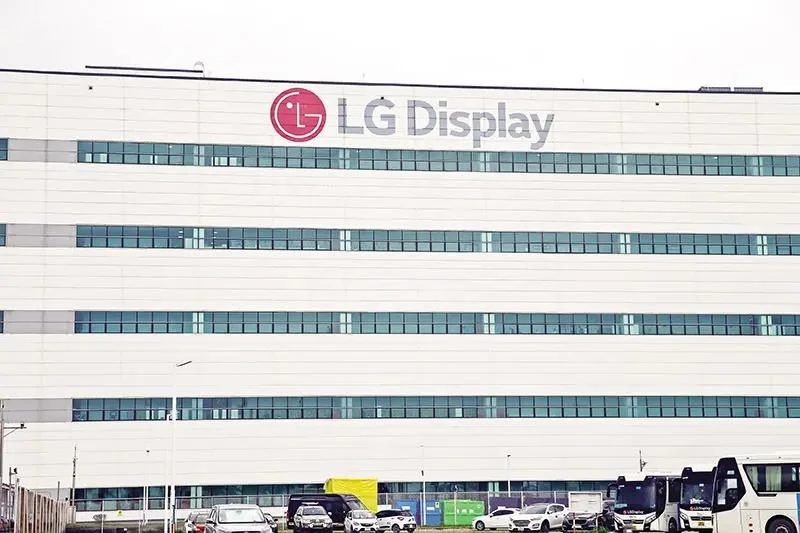
Hanoi (VNA) - Vietnam is witnessing a significant shift in the quality of foreign direct investment (FDI) projects pour into the country as an increasing number of high-tech and pioneering industrial companies move into the country to expand operations.
Samsung has recently announced an additional 1.8 billion USD investment in its Samsung Display factory in Bac Ninh province, expanding production beyond organic light-emitting diode (OLED) screens for smartphones to include OLED displays for IT equipment and automobiles. LG, another corporation from the Republic of Korea (RoK) will inject another 1 billion USD into its project, raising the total investment from 4.65 billion USD to 5.65 billion USD. This funding will enable the production of 14 million high-tech OLED screens per month, making it one of LG's largest projects in Vietnam.
The additional investment not only supports Vietnam’s goal of attracting 39-40 billion USD in FDI this year but also exemplifies the transformative shift in foreign investment into the country.
According to a recent Savills Vietnam report, the country’s industry sector is undergoing a transformative phase, attracting a wave of high-value investments.
John Campbell, Director and Head of Industrial Real Estate at Savills Vietnam, said this marks its evolution into a manufacturing, logistics, and digital hub in Southeast Asia.
Key areas like digital economy and data centres are expected to see a surge in investment in the near future.
Campbell held that the country’s shift toward high-value-added manufacturing, alongside its expanding logistics and data centre capabilities, is bolstering its global supply chain position. With its competitive costs, strategic location, and extensive trade agreements, Vietnam is well-positioned to capture this new wave of investments, he noted.
Meanwhile, Shunsin Technology Vietnam Co., Ltd., a subsidiary of Taiwanese tech giant Foxconn, announced an 80 million USD investment in chip manufacturing project in Bac Giang province.
Universal Microwave Technology, a SpaceX supplier, also plans to expand in Vietnam. Some companies that provide Starlink equipment for SpaceX, such as Wistron NeWeb Corporation and Shenmao Technology, are planning to establish manufacturing bases in the country.
In September 2024, during a meeting with Party General Secretary To Lam in New York, SpaceX Senior Vice President Tim Hughes revealed the company’s intent to invest 1.5 billion USD in Vietnam.
A strategic manufacturing hub
Vietnam is becoming a key link in the global supply chain, especially in sectors like semiconductors and artificial intelligence (AI). Savills Vietnam’s observations align with this trend, with the country transforming into a crucial manufacturing and R&D hub for foreign investors like Samsung.
Minister of Planning and Investment Nguyen Chi Dung emphasised the government’s commitment to leveraging the country’s competitive policies, clear strategies, and skilled workforce to play a key role in the global semiconductor value chain.
A report by the US Semiconductor Industry Association and Boston Consulting Group in May this year predicts Vietnam could account for 8-9% of global chip assembly, testing, and packaging (ATP) capacity by 2032, up from 1% in 2022. By 2030, the global semiconductor market is expected to reach 1 trillion USD, presenting significant opportunities for Vietnam.
To attract large-scale projects in semiconductors and AI, Vietnam must address challenges such as improving workforce quality along with investment policies. The Ministry of Planning and Investment suggests establishing an Investment Support Fund and implementing special investment procedures for high-tech projects./.
